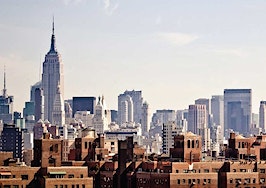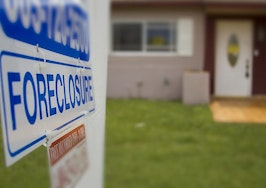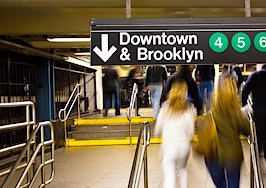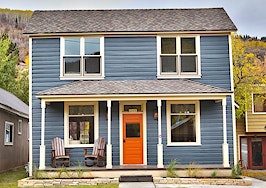- Last week, AECOM architecture and Dewberry design firms were selected by the Economic Development Corp. to strategize flood damage alleviation and boost the waterfront appeal between Montgomery and Harrison Streets.
- The project is due to start in 2017 and complete in 2022, but officials aren’t sure where the rest of the $300 million minimum needed to complete the project will originate.
- Aside from shielding the urban landscape, The Big U plans to deliver communal and ecological designs to improve the outdoor facilities systems in the area simultaneously.
- Specific plans for phase two of the coastal resiliency measures being set forth by AECOM and Dewberry have yet to be released.
In new efforts to get the Big U project off the ground, the NY Economic Development Corporation called on additional teams to engineer a system that will protect lower Manhattan’s waterfront from flood damage. Last week, AECOM architecture and Dewberry design firms were selected by the Economic Development Corp. to strategize flood damage alleviation and boost the waterfront appeal between Montgomery and Harrison Streets.
The 3.5-mile stretch between the Lower East Side and Tribeca is formally known as the Lower Manhattan Protect and Connect project. This and other components make up the larger Big U project, which New York Senator Chuck Schumer recently announced had received federal funding to move forward.
[Tweet “The entire project has secured $600 million in funding”]
The entire project has secured $600 million in funding, $176 million of which has come from federally backed investments. The project is due to start in 2017 and complete in 2022, but officials aren’t sure where the rest of the $300 million minimum needed to complete the project will originate. Even with just under $1 billion in preliminary reserves, construction costs could soar over the course of the project.
Also referred to as the Manhattan “Dryline,” Architect Bjarke Ingels introduced the Big U over two years ago in a city-hosted competition called the Rebuild by Design contest. The Dryline reaches from E. 42nd to W. 57th Street, protecting 10 miles of susceptible Manhattan waterfront property.
Aside from shielding the urban landscape, The Big U plans to deliver communal and ecological designs to improve the outdoor facilities systems in the area simultaneously. Some of these proposals include planting salt-tolerant trees and shrubs to create a durable habitat on the Lower East Side in what is referred to as “Bridging Berm.”
Further, detachable walls will be placed under FDR Drive, between the Manhattan Bridge and Montgomery Street. When not in use, onlookers can gaze at the panels decorated by neighborhood artists. At night, the panels feature lights for added safety measures.
[graphiq id=”c2JvgKMoJqB” title=”Manhattan Bridge” width=”600″ height=”403″ url=”https://w.graphiq.com/w/c2JvgKMoJqB” link=”http://bridges.findthedata.com/l/354927/QUEENSBORO-BR-OVR-EAST-RV” link_text=”Manhattan Bridge | FindTheData”]
Ingels and his firm, Bjarke Ingels Group, are working alongside One Architecture, Starr Whitehouse, James Lima Planning + Development, Project Projects, Green Shield Ecology, AEA Consulting, Level Agency for Infrastructure, Arcadis and the Parsons School of Constructed Environments during the project.
Together, the design teams plan to replace the existing Coast Guard building with a maritime museum or environmental educational facility, complete with a “reverse aquarium” for visitors to view tidal variations and sea level shifts – all while creating a flood barrier for the area.
After witnessing the effects of Hurricane Sandy on the shoreline, experts determined necessary measures should be put in place to protect the city’s residents and businesses. Hurricane Sandy caused more than $65 billion in damage to the United States alone, according to Fox.
Specific plans for phase two of the coastal resiliency measures being set forth by AECOM and Dewberry have yet to be released.





